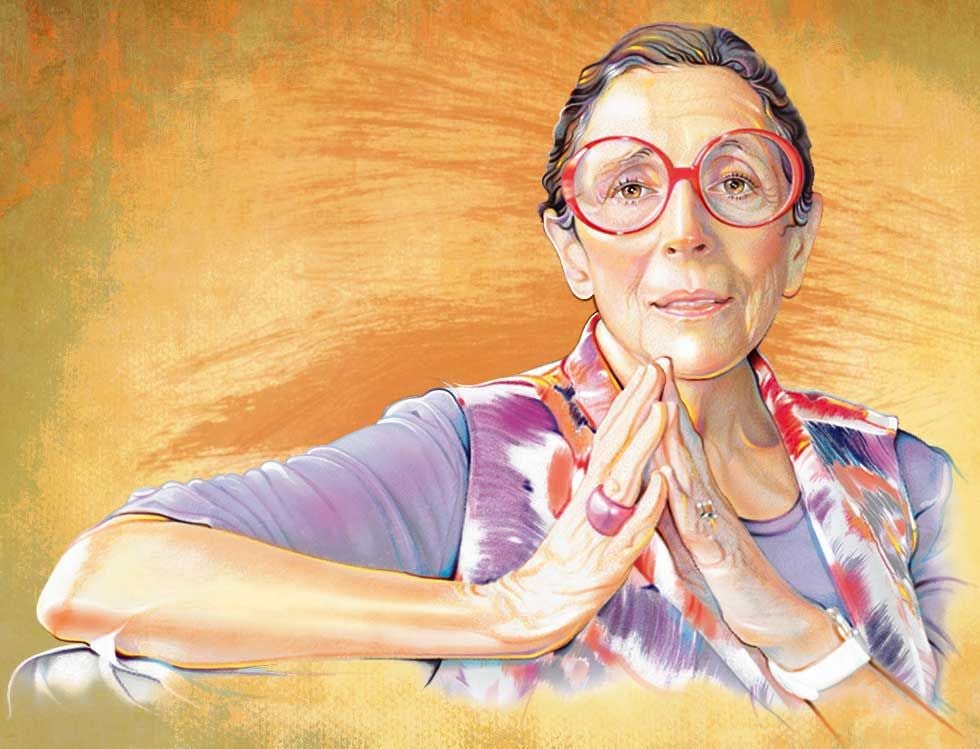A senior canine and a senior human can be a match made in heaven. They need each other and can be of great help to each other.
Why do dogs that are advancing in years need one of us oldies to adopt them? Because ageism affects senior dogs as well as us.
Veterinarians do not label a dog a senior until age seven (smaller dogs live longer than big breed dogs so they may stay “youthful” longer). But any dog after age five is much less likely to be adopted than a young dog. Many are euthanized though they have some good years ahead.
Years ago I wrote a column answering, “Should I get a dog for my child?” At what age? Now that I know a bit about senior humans I will answer the question: Why should a senior get a dog?
Actually some of the considerations are the same. Both children and seniors get a special type of unconditional love and affection from a dog. Your bad/sad day can be brightened by a wagging tail and a dog is always ready to play.
Seniors, especially those living alone, get health and well-being benefits from giving a dog a home and bonding with a living creature. According to a paper published in The Gerontologist, dog walking provides us with much needed exercise (the CDC recommends at least 150 minutes of moderate exercise a week), a lower body-mass index, fewer visits to the doctor, and more socialization opportunities when compared to non-dog owners
Other benefits include a reason to get up in the morning, the joy of a constant companion, the sensory joys of touching a furry creature, having a responsibility for another living thing, which gives us a sense of purpose, and having a responsive loving creature to talk to. (If you don’t believe dogs can communicate back to us you haven’t lived with one.)
Pets can actually reduce loneliness and depression in the elderly.
Before getting a dog a senior must consider the following: work, expense, and most important, safety.
- A pet requires work: Feeding, walking, cleaning up accidents inside and using poop bags outside.
- A dog is not cheap. You must budget for food, collars, licenses, pet door, veterinarian bills, neutering, boarding or finding a dog sitter when you go on vacation.
- Safety issues are important for seniors to consider when contemplating getting a dog. An animal underfoot can cause tripping and falls in all seniors especially those with balance issues. Large dogs can pull or knock you over. Small dogs may not be noticed (a bell can be attached to the collar so if you wear your hearing aids disaster can be averted!). Dog dishes, spilled water, and toys can be hazardous underfoot. Bathing a slippery dog can be too much for many of us.
“The right dog for the right owner” is always important but especially for seniors. My niece was an orthopedic surgeon. She had performed many emergency hip replacements in elderly patients who had been pulled down or knocked over by a big dog. She suggested I get a small dog when our Brittany died. On the other hand, we seniors likely to have balance and vision problems can trip over a small dog.
Best to get a breed that is suitable for you and your lifestyle. You can ask a veterinarian for advice, go see a variety of breeds at a dog show where you can talk to owners about breed-specific behavior, and study breed behavior online. The dog’s temperament is very important. We seniors need calmness instead of unbridled exuberance.
Puppies do not come to you housebroken and by nature have an activity level that may be too much for you and your lifestyle. This is why adopting a senior canine might be the perfect solution. Check animal shelters and go online looking for specific organizations that focus on adoption of senior dogs.
I am one of those seniors that will have to make a decision on a replacement dog soon. My beautiful Cavalier King Charles spaniel is 11½. She has congestive heart failure and is totally deaf, but is responding to doggie heart medicines. (These are pretty much the same as human heart medicines but there is no Part D for doggies.)
I am convinced Mindy saved my life when my husband died. She saw to it that I dragged myself out of bed every morning when I wanted to pull the covers over my head. I will do everything in my power to keep her alive as long as she has a good quality of dog life.
My questions now are: Am I too old to get another dog? Will I be able to care for it? Should I get one now? Do I have the strength and stamina to raise a puppy? What about an older rescue dog?
My veterinarian said I should get another dog now. He feels that a dog is important for both my physical and psychological health and that Mindy will enjoy a canine buddy. He noted that older dogs may be set in their ways while a puppy can be trained my way.
I can see both sides of this issue and am researching to find a replacement dog although there will never be another Mindy. My veterinarian husband said we can have many pets in our lifetime but the God of Dogs gives us only one perfect dog. Mindy is mine.
Another consideration at my advanced age is the legacy issue. Who will care for the dog when I can no longer so or am no longer around? My children are dog people and have agreed to adopt my dog. My succession affairs are in order.





